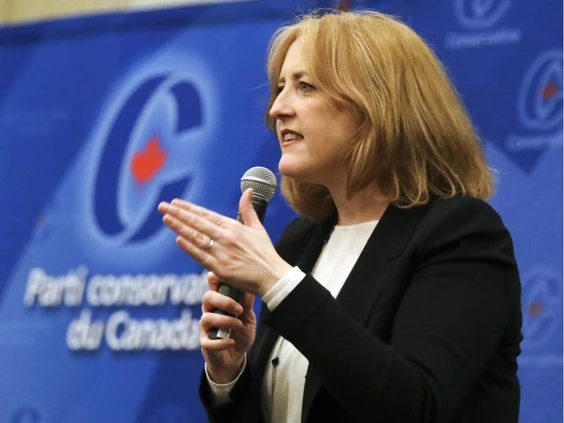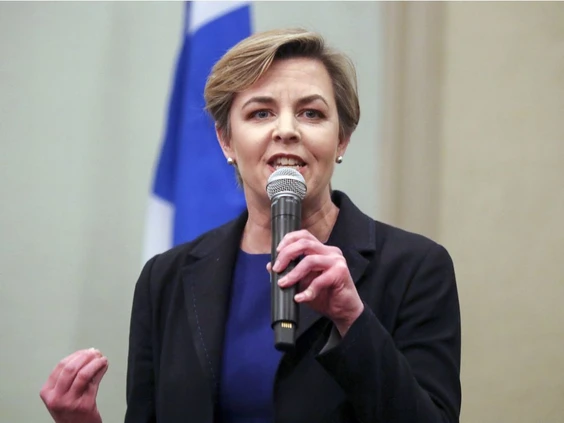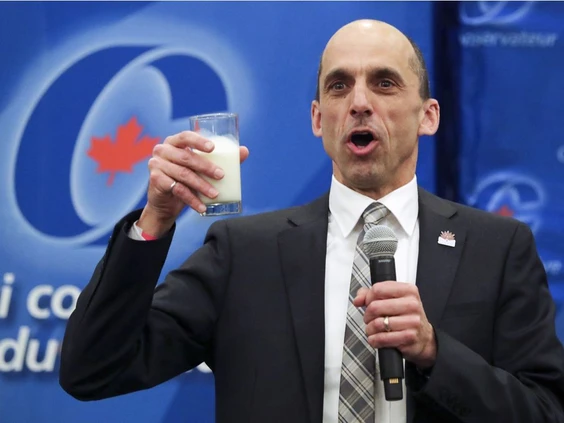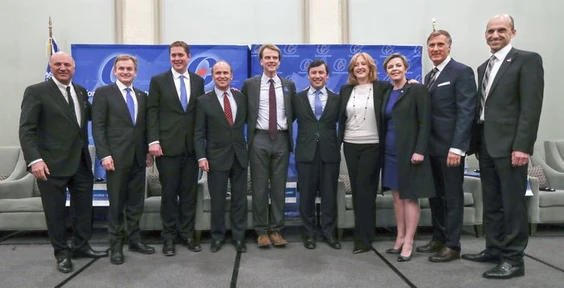An unofficial federal Conservative leadership debate in Pointe-Claire put candidate Kevin O’Leary’s French skills to the test
So? Can Kevin O’Leary speak French?
The curious turned out in droves for the Conservative leadership debate at the Holiday Inn Pointe-Claire, on Monday.
Prior to the debate, party members and candidates sipped on cocktails and mingled. And then he arrived.
In unison, all cameras turned toward the prominent businessman and reality TV star as he entered the event that was organized by riding associations in Pierrefonds-Dollard and Lac-St-Louis.
“I want the people of Quebec to know that I am committed to learning the language,” he said, when asked if he was ready to field questions in both official languages. “You can’t govern this country without speaking French and English.”
It was the second unofficial debate for the candidates. The first, an all-French debate, took place in Quebec

City, Jan. 17.
O’Leary missed the first debate because he did not officially become a candidate until the next day.
After being called out for the timing of his announcement, he added fuel to the linguistic fires by saying it wasn’t necessary for the future federal Conservative leader to be bilingual.
O’Leary, who was born in Montreal, has since backtracked and is taking daily French immersion classes.
Eleven of the 14 Conservative candidates took to the podium Monday. Each question, gathered from Twitter, Facebook, email and from the floor, was asked to three candidates at a time, the whole process orchestrated by moderator Beryl Wajsman, editor of The Suburban.
The expected turnout of 100 swelled to more than 500, prompting organizers to open the accordion wall at the back of the banquet room. Even then, it was standing room only.
O’Leary’s opening statement was delivered in a sing-song, accented French.
“Mes amis Québécois,” he said to wild cheers from the audience. “Le français, c’est très important pour moi. Je suis avec mon professeur de français tous les jours.”

All the candidates spoke French in the opening moments — demonstrating moderate to excellent skill — with the exception of Kellie Leitch, who struggled with every word.
And that was it.
The debate settled into a pattern, with candidates answering the majority of questions in the language they felt most comfortable speaking. O’Leary did not answer a spontaneous question, entirely in French, for the duration of the debate. Neither did Leitch.
In English, O’Leary’s answers came from the liberal end of the conservative spectrum.
Talking points veered from addressing the deficit to cutting taxes to immigration, to national security, gay rights, victims of sexual assault and the court system, the legalization of marijuana, trade agreements and the

Canadian farmer and U.S. President Donald Trump’s policies.
O’Leary voiced support for reproductive rights, gay rights and legalizing marijuana, and spoke at length about the importance of reaching out to the ethnic communities.
Leitch represented the opposite end of the spectrum. She called for tighter immigration policies, a more stringent face-to-face interview process at the border and the protection of Canadian values.
O’Leary came to the debate as a front-runner, the status fuelled by his high-profile appearances on the CBC reality television show Dragon’s Den, but he was not unduly challenged by his competitors — usually a sign the other competitors believe him to be a threat.
He was challenged on occasion, but so was Quebec MP Maxime Bernier — a crowd favourite on Monday.
O’Leary referred to his notes when reading his French closing statement. He promised to work on his language skills.
Conservative candidates Brad Trost and Pierre Lemieux attended, but did not participate in the debate. Candidate Deepak Obhrai did not attend.
Card-carrying members of the Conservative Party will elect their new leader on May 27th.

